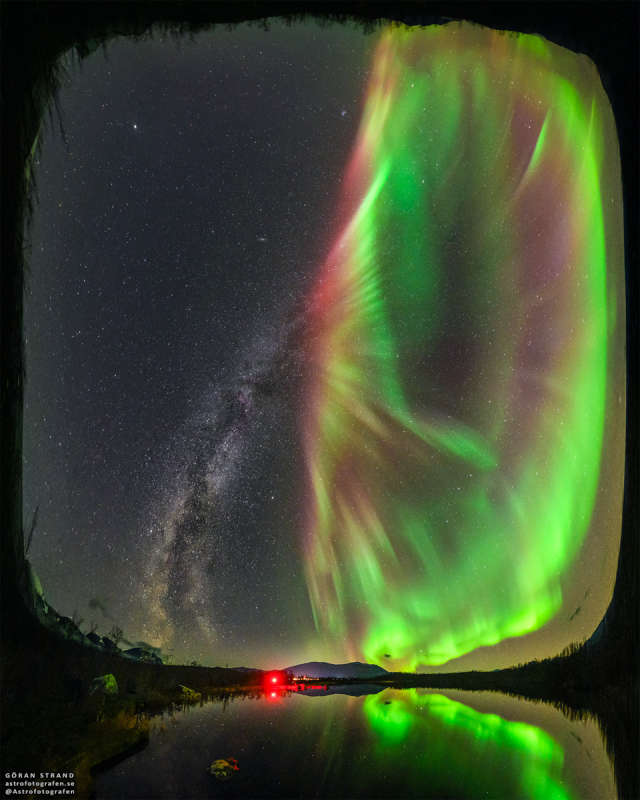 |
Астронет: Астрономическая картинка дня Цветок северного сияния и Млечный Путь http://www.astronet.ru/db/msg/1853058/eng |
Credit & Copyright: Göran Strand
Explanation:
Could the stem of our Milky Way bloom into an auroral flower?
No, not really, even though it may appear that way in
todayБs featured all-sky image.
On the left, the
central plane of our
home galaxy
extends from the horizon past the
middle of the sky.
On the right, an
auroral oval also extends from the sky's center --
but is dominated by bright
green-glowing oxygen.
The two are not physically connected, because the
aurora is relatively nearby, with the
higher red parts occurring in
Earth's atmosphere only about 1000
kilometers high.
In contrast, an average distance to the
stars and nebulas we see in the
Milky Way more like 1000 light-years away - 10 trillion times further.
The featured image
composite was taken in early October across a small lake in
Abisko, northern
Sweden.
As our
Sun's magnetic field evolves into the active part of its
11-year cycle,
auroras near both of Earth's poles are
sure to become
more frequent.
Authors & editors:
Robert Nemiroff
(MTU) &
Jerry Bonnell
(USRA)
NASA Web Site Statements, Warnings,
and Disclaimers
NASA Official: Jay Norris.
Specific
rights apply.
A service of:
LHEA at
NASA /
GSFC
& Michigan Tech. U.
